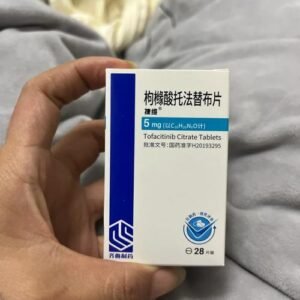Risperidone Tablets
Effects and efficacy:
Psychotic disorders such as schizophrenia are effective for positive symptoms of schizophrenia (such as hallucinations, delusions, disordered thinking, hostility, suspicion) and negative symptoms (such as slow reaction, emotional indifference and social indifference, few words) and affective symptoms (such as depression, guilt, anxiety). It can be used for acute, recovery and long-term maintenance treatment. Tourette syndrome: a chronic tic disorder characterized by multiple movements and pronunciation, mainly manifested by involuntary, multiple motor tics and pronunciation tics.
Usage and dosage:
Adults once or twice a day. The recommended starting dose is twice a day, 1 mg once, and increase to twice a day, 2 mg once on the second day. If tolerated, it can be increased to twice a day, 3 mg each time on the third day. After that, this dose can be maintained unchanged or further adjusted according to personal circumstances. The maximum effective dose range of risperidone is 4-8 mg per day, but twice a day, daily doses of more than 6 mg cannot be proven to be more effective than lower doses, and are associated with more extrapyramidal symptoms and other side effects, so it is generally not recommended. Since the safety of doses greater than 16 mg per day has not been evaluated, the daily dose should not exceed 16 mg. The recommended starting dose for the elderly is 0.5 mg twice a day. According to individual needs, the dose is gradually increased to 1-2 mg twice a day. The dose adjustment interval should be no less than 1 week, and the dose increase or decrease is 0.5 mg twice a day. Before gaining more experience, the elderly should use risperidone with caution. The recommended starting dose for patients with kidney and liver disease is 0.5 mg twice a day. According to individual needs, the dose is gradually increased to 1-2 mg twice a day. The dose adjustment interval should be no less than 1 week, and the dose increase or decrease is 0.5 mg twice a day. The clinical application experience of these patients is limited, and medication should be used with caution.
Adverse reactions:
Common adverse reactions include: insomnia, anxiety, agitation, headache, dizziness, and dry mouth. Rare adverse reactions include: drowsiness, fatigue, decreased concentration, constipation, sexual dysfunction, indigestion, nausea, vomiting, abdominal pain, blurred vision, urinary incontinence, rhinitis, rash and other allergic reactions. It may cause extrapyramidal symptoms such as muscle tension, tremor, rigidity, salivation, bradykinesia, akathisia, and acute dystonia. It can be eliminated by reducing the dose or giving central anticholinergic drugs such as benzhexol. Occasionally, symptoms of postural hypotension, reflex tachycardia or hypertension may occur. It may cause weight gain, edema and elevated liver enzyme levels. Occasionally, it may cause thirst or dysregulation of antidiuretic hormone secretion. It may cause an increase in plasma prolactin concentration, and its related symptoms are: galactorrhea, male breast enlargement, menstrual disorders, and amenorrhea. Occasionally, tardive dyskinesia, malignant syndrome, temperature disorders and epileptic seizures are seen. There are individual reports of mild decreases in neutrophil and platelet counts. It may occasionally cause abnormal liver function.
Drug contraindications:
Allergic to this product is prohibited. Use with caution during pregnancy and lactation.
Share:
Products
Our offers
Health Classification
Let us work together to protect precious health

































